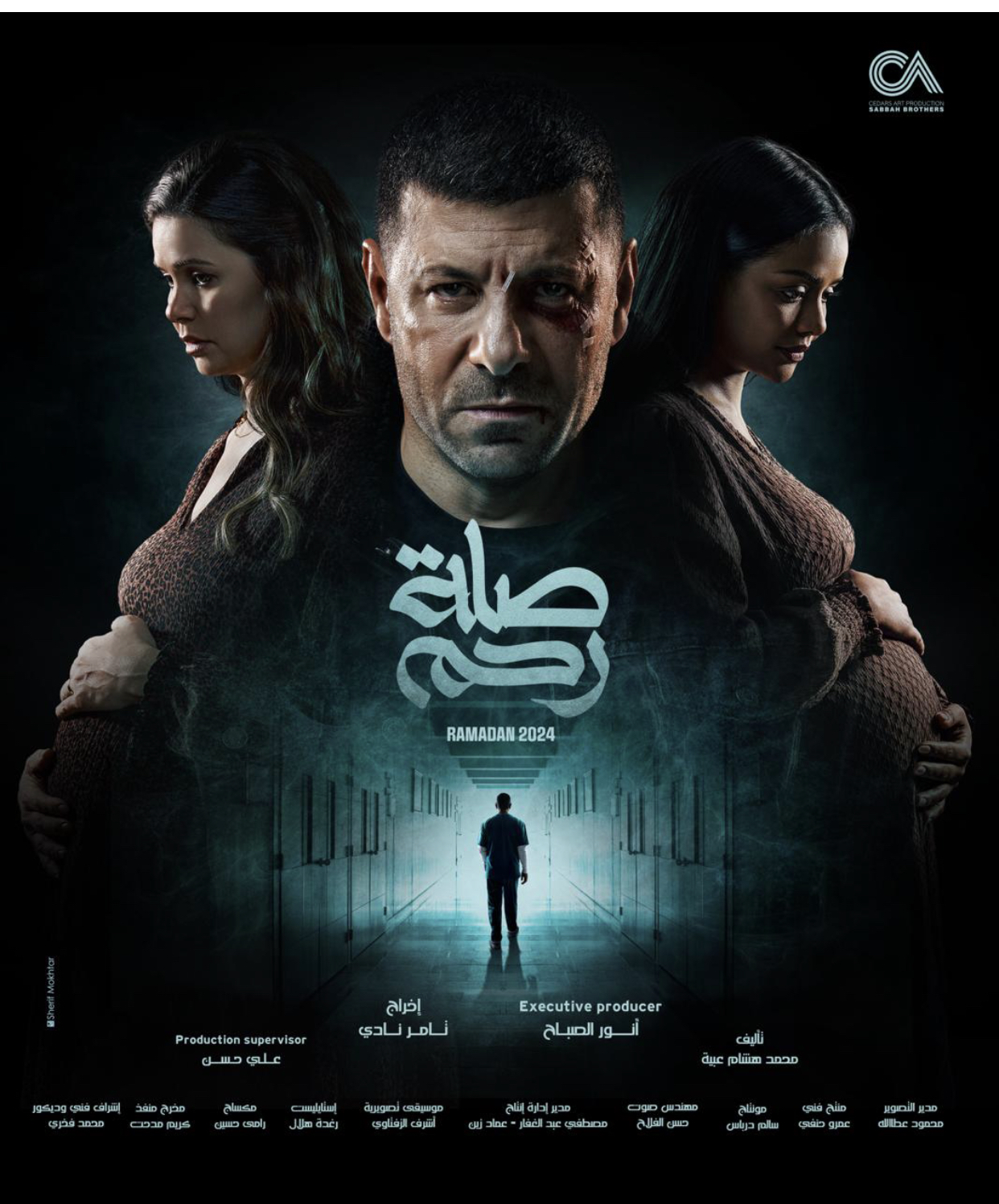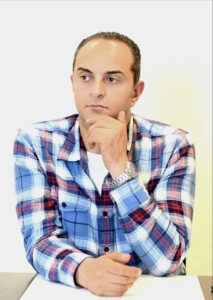Review of ‘A Tie of a Womb’ (Selat Rahem)’ TV series, directed by Tamer Nady, Egypt, 2024, available on Shahid MBC in Arabic with English subtitles
Review by Khalid Ali, Film and Media Correspondent.
Surrogate pregnancy, backstreet abortion, doctor/patient romantic relationships, and doctors’ addiction are sensitive issues everywhere, but particularly so in the Arab world. Mohamed Hisham Obaya, script writer, and Tamer Nady, director, tackle the formidable challenge of exploring all of these controversial topics in their TV series ‘A Tie of a Womb’ (Selat Rahem). Before summarising the content of the series, the religious, ethical, moral, and legal context must be clarified. This can be done succinctly, in a single statement: In nearly all countries in the Middle East/ North Africa (MENA) region, ‘surrogate pregnancy’ and ‘abortion’ are strictly banned and viewed by society as the ‘cardinal sin’ of murdering a human soul, unless it is performed in exceptional medical circumstances such as when the mother’s life is in dire risk.

Hussam (Eyad Nassar) is an anaesthetist happily married to Leyla (Yosra El Lozy), a consultant psychiatrist. The couple first met when Hussam was Leyla’s patient recovering from a failed first marriage. A few years later, and after several failed attempts of in-vitro fertilisation (IVF), Leyla manages to conceive. Hussam is far from an ideal husband; he secretly meets his ex-lover Dr Gihan (Reyam Kafarna) in her house and ends up drunk. That same night, Leyla goes into early labour, and calls Hussam to be with her. Driving Leyla to hospital under the influence of alcohol, Hussam crashes the car. Leyla is badly injured and tragically loses the baby. To make matters worse, she also requires an emergency hysterectomy to save her life. Driven by guilt, Hussam searches frantically for a surrogate mother who would agree to, in effect, hire out her womb for a fertilised ovum from Leyla. Hussam becomes obsessed with having a baby; he sees this as the only way he can absolve himself of having caused Leyla to remain childless for life. Adoption is not an option for him. Hanan (Asma Abulyazeid) is the vulnerable woman who agrees to hire out her womb to fulfil Dr Hussam’s burning wish. Hanan is herself running away from an abusive ex-husband, Farag (Mohamed El Soueisy); she has undergone a ‘backstreet abortion’ to rid herself of a baby whose father is a bully. The transaction between Hussam and Hanan is negotiated in secrecy without Leyla’s knowledge. However, Hussam is convinced that Leyla will forgive him when he presents her in due course with their baby. Hussam’s determination to assure that the unborn baby is registered with Leyla as the biological mother leads to a spiralling cycle of forgery, corruption, and violence. Dr Khaled (Mohamed Gomaa), a modern day version of ‘Vera Drake’,1 is the doctor who performs ‘backstreet abortions’ in his private clinic for impoverished unmarried pregnant young women. Financial gain is not Dr Khaled’s motivation; instead, he is driven by empathy for women whose lives might be threatened by their families executing ‘honour killing’ if they were to learn of their pregnancy.
When Leyla comes to know of Hussam’s scheme of hiring the womb of a strange woman without her knowledge or blessing, she resorts to ‘sedative drug addiction’ in an effort to numb her distress.
Obaya, as script writer, has taken care to avoid incriminating any of the characters. In his own words: “I was mindful to portray these people without any judgement; Dr Hussam was driven by a natural desire of having a baby that belongs to him and his wife, Leyla. From his point of view, it is legitimate to pay Hanan as she needs the money, and he can afford to pay her. He does not view it as exploitation. Human beings are not infallible, their weakness and vulnerability are facts of life. We cannot issue judgements or incriminate others without hearing their motivations first. Mercy and forgiveness are values that enable us to accept human weakness”.

Obaya continues: “Surrogate pregnancy is a subject that touched me as a person. Having read about its practice in the MENA region, and supported by a professional researcher Alaa Azmy, we found out that it is undertaken in a regulated manner in Iran only either altruistically or commercially.2
The choice of the protagonist, Dr Hussam as an anaesthetist, was intentional. Anaesthetists’ work is perhaps unique in medicine, as it allows them access to and knowledge of several other specialties. That professional perspective explains how Dr Hussam was able to identify Dr Khaled, who in turn helped him with finding Hanan, and later arranged to conduct the procedures of surrogacy illegally. I wanted to highlight the fact that one action, a single error, can lead to a whole series of mistakes and violations, a domino effect”.
Surrogate pregnancy remains a controversial issue worldwide. In the UK, for example, a proposal was submitted to government in March 2023 to regulate and reform laws and practice around surrogacy. The Law Commission of England and Wales has published a joint report with the Scottish Law Commission, outlining recommendations for a robust new system to govern surrogacy, which will better address the needs of children, surrogates and intended parents.3
This series boasts sensitive, nuanced performances from Eyad Nassar and Asma Abulyazeid. However it is Yosra El Lozy who steals the show as the woman going through the stages of grief, anger, denial and finally acceptance and hope. Credit also goes to director Tamer Nady who delivered a multi-layered narrative with elegance and poignancy.
‘A Tie of a Womb’ makes a uniquely important contribution in opening up serious conversations in the Arab world about the taboos of surrogacy and backstreet abortion.
References
[1] Khalid Ali. Vera Drake. BMJ 2004; 329 (7474): 1107. https://www.ncbi.nlm.nih.gov/pmc/articles/PMC526134/.
[2] F Ghodrati. A comparative study of surrogacy rights in Iran and European countries, a review article. Ethics, Medicine and Public Health, volume 27, April 2023, 100880, https://doi.org/10.1016/j.jemep.2023.100880.
[3] Surrogacy. Law Commission. Reforming the Law. https://lawcom.gov.uk/project/surrogacy/ accessed on 2nd April 2024.
Recommended reading
1. Khalid Ali. Secrets and Lies. BMJ. 2008; 336 (7634): 47. https://www.ncbi.nlm.nih.gov/pmc/articles/PMC2174735/